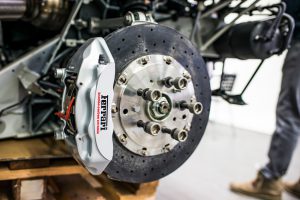Why Your Brakes Need Preventative Maintenance
Brakes on your vehicle have a challenging job; they are the parts that work hard every time you drive. To ensure safe riding, your brakes must be in good working order. Brakes that are properly maintained will preserve the longevity and optimum performance of your car, as well as assist you in avoiding accidents.
A vehicle’s braking system is complicated, yet it is surprisingly easy to maintain. You must inspect every part, including the master cylinder and brake line, brake pads, calipers, and rotors, on a regular basis to ensure that they are in good working order and make any necessary repairs.
Even simple tasks like changing brake pads can be difficult and require skill. It is preferable to hire specialists to perform the repairs in order to ensure that the necessary precautions are performed.
What is Preventative Maintenance, and how does it work?
Preventative maintenance refers to the precautions and procedures that must be taken to avoid accidents and equipment failures. It entails routine brake checks, cleaning and repairs. Its purpose is to lessen the likelihood of accidents and avoid having to regularly repair faulty braking parts.
A maintenance program is required for your car. Check your brake pads every 12,000 miles and replace your fluid every 25,000 miles, according to the manufacturer’s recommendations.
Here’s what you should do to keep your braking system in good working order:
Make Sure Your Brake Pads and Rotors Are in Good Shape.
The point of contact between your braking system and your tires is these two. They deteriorate more quickly than other parts and need to be maintained on a regular basis. The heat generated by friction between the tire and the brake pad destroys the brake pad. To inspect the brake pads and rotors, remove the tire and inspect the damage. If there is any damage, replace it right away or take it to the shop.
Bleed the Brake Lines and Flush the Brake Fluid
Brake fluid serves as a conduit between you and your vehicle’s braking system, therefore it’s crucial. When you depress your brake pedal, the pressure is transferred through the brake fluid, from the master cylinder, through the brake lines, and into the calipers, and finally to the brake pads and rotors. The moisture that the brake fluid collects, on the other hand, is harmful to the braking system. A murky or milky appearance suggests that the fluid needs to be replaced.
Additionally, bleeding the brake line can eliminate surplus air, as air trapped inside the brake line can diminish the braking system’s effectiveness.
Brake System Maintenance
To avoid brake failure-related problems and keep your brakes operating better, avoid carrying too much weight and stopping needless and heavy braking.
Preventative maintenance ensures safety, extends the life of the braking system, and reduces maintenance expenses. It will also improve the vehicle’s efficiency and effectiveness. Prevent problems from occurring and reap the rewards of doing the right thing for your brakes.

